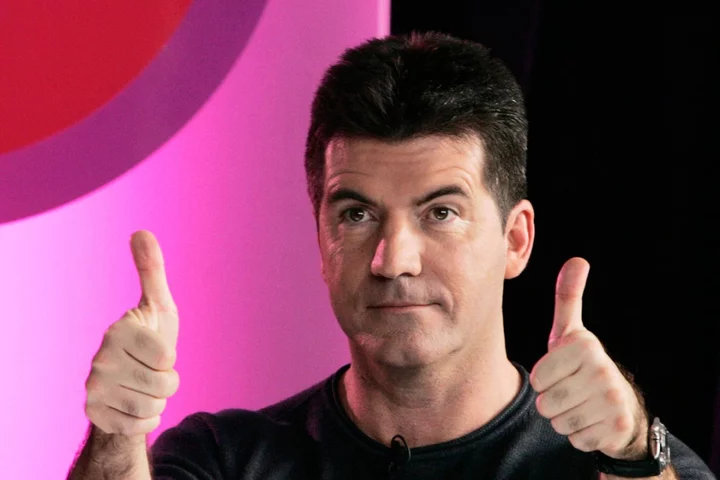
As Simon Cowell shares positive therapy experience, how can it help even if you aren’t in crisis?
X Factor boss Simon Cowell, 63, has shared that having discovered therapy in the past year, he feels as though “a weight has lifted off my shoulders”. The music mogul, who is behind The X Factor and Britain’s Got Talent, said he wished he had seen a therapist “10 or 20 years ago” in a recent interview with the Daily Mirror. He also shared that the deaths of his parents and the coronavirus pandemic had affected his mental health. Seeking therapy has been transformative for Cowell and it could do the same for you, whether you are in crisis, or just want to learn more about yourself. Cowell has said engaging in therapy had a “super positive effect” on his life and encouraged others to do the same, so here’s what you should know. There are different types of therapy Contrary to what many people may believe, counselling, where you sit and talk through events and reflect, is not the only form of therapy. “There are a whole host of different types of therapies available, from counselling, cognitive behavioural therapy, mindfulness-based cognitive therapy, acceptance and commitment therapy, interpersonal therapy, psychodynamic psychotherapy to eye movement desensitization and reprocessing,” explains psychologist and author of The Self-Care Revolution, Suzy Reading.Each one can have a different role in helping you get to know yourself better, handling trauma, feeling more grounded and coping more day-to-day. Therapy isn’t just for rock bottom Therapy doesn’t have to be a last resort. “When it comes to therapy, there are no hard and fast rules,” says Liz Ritchie, a St Andrew’s Healthcare psychotherapist. “Many people associate seeking help with crisis, but there is no reason why you cannot maintain regular sessions with your therapist. There is now a wealth of evidence that supports that therapy can also be a preventative form of mental healthcare, a little bit like going to a dentist or a doctor. “Life is busy and stressful, which means we don’t often have time to process cross words with a loved one, work altercations or issues with friends and family members.” You’ll understand yourself better You may think you understand yourself totally, but there are always new parts of ourselves to get to know. “Therapy helps us better understand ourselves, our relationships and the world, connecting us with how we feel, and why we might feel as we do. It is a journey of self-discovery, helping us appreciate our strengths and identify our values,” says Reading. It could give you an emotional toolkitIt can be helpful to have “an impartial sounding board to speak openly and honestly and the opportunity to be heard, validated and understood”, says Reading. “Therapy helps us challenge unhelpful thoughts, dispute self-limiting beliefs and can help us create new habits. Therapy is also about developing healthy ways to move through our emotions, creating a fresh toolkit of coping strategies and can be very practical in nature by helping us address specific challenges or goals.” But… it isn’t easy Unfortunately getting therapy is not always easy. If you do not have the financial freedom to be able to pay for a private therapist, you may be faced with long waiting lists and restrictive services. However, NHS therapy is an option and can be really helpful, so be sure to look into the options you can afford near you. Reading recommends checking out BPS and HCPC to find a qualified therapist. NHS resources can be accessed here. If you are seriously struggling with your mental health, and are at risk, please call 999 or the Samaritans on 116 123.
2023-08-31 20:54
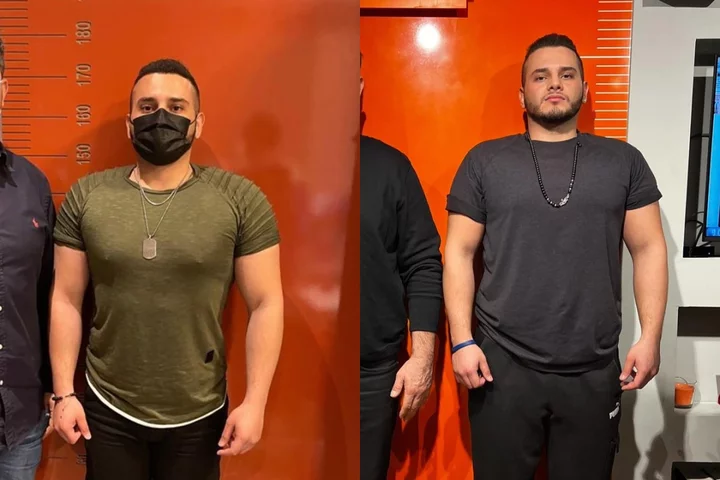
Man who lengthened his limbs by three inches feels ‘so much happier’
A Canadian man has had limb-lengthening surgery, costing £25,000, to increase his height from 5ft 7in to 5ft 10in as he was so insecure about his height it caused him to have “suicidal thoughts”, and claims he is now “so much happier” and “confident”. Daniel Farbod, 27, a civil engineer, from Toronto, Canada, has been self-conscious of his height “all (his) life” – when he stopped growing, at age 14, he said it felt “tragic” and like his “first stab to the heart.” Daniel always defined “being masculine” as being tall, and was “ashamed” of himself as he “didn’t feel like a man.” Over time, being taller was all Daniel could dream about, and claimed his height “impacted his mental health so badly” that he was having “suicidal thoughts”. After coming across the unique surgery online, he realised he was “willing to sacrifice time and money to get (his) life back.” So, in May 2021, he had his first procedure in a specialist clinic in Turkey, which involved breaking his femurs, hollowing out the bone, and putting a rod inside the bone with external fixators, pieces of steel on the outside of his legs. Daniel had to turn the fixators with an Allen key every day for over four months, and eventually had his second surgery to remove the fixators after his bones had successfully fused together. When Daniel recovered, he could not “put into words how happy (he) was” and “felt so much more confident”, now, he is sharing his journey on social media to inspire others who are insecure about their height. Daniel told PA Real Life: “I’m really proud of myself for having the surgery. “I was insecure all my life about my height, it impacted my mental health so badly. “I was suicidal, and after admitting that I wanted to take the steps to feel better, and have the surgery, I feel so much better. “I think for other people, it is important to know how tough the surgery and recovery is – it was the hardest thing I’ve ever done, but for me, it changed my life and made me grow not only literally but also metaphorically as a person.” Daniel, who has always been self-conscious about his height, stopped growing at age 14, and became obsessed with finding ways to become taller. He said: “I researched everything from socks and supplements that claimed to increase your height. “I was always insecure and worried about it – I used to go to orthopaedic doctors because I was so scared of not growing. “But when I got to age 14, I stopped and it was so depressing.” When it became clear to Daniel that he was unlikely to grow any more, it took a toll on his mental health and confidence. He explained: “It was so tragic for me, it was like my first stab to the heart. “All my dreams would be about being taller and I had to somehow accept that my height had peaked. “I tried to keep myself busy to manage my thoughts but in 2020 I just couldn’t handle it – I had all of these negative thoughts and suicidal thoughts because I think being masculine, and being a man, means to be tall. “I didn’t feel like a man, I was so ashamed.” Daniel felt as though having limb-lengthening surgery was the only way he was going to feel better, but his parents, who are both “on the shorter side”, did not approve of his decision to have cosmetic surgery. He said: “Everyone was really against the idea because they thought it was not natural and it was changing the way your body is meant to be. “I knew the surgery was going to be tough, but I thought even that pain would be better than having suicidal thoughts. “I was willing to sacrifice time and money to get my life back.” In May 2021, Daniel had his first surgery in a specialist clinic, Live Life Taller, in Turkey, which involved breaking both of his femurs, hollowing out the bone, and putting a rod inside the bone with external fixators – pieces of steel on the outside of his legs. He explained: “I was really scared when I got to the clinic, and the breaking of the bones was the part I was most nervous about in the whole process. “It was crazy to wake up after the surgery – the reality just hit me all at once and I was so happy.” His recovery involved being in a wheelchair and using an Allen key to turn a bolt on the fixators four times a day at 90 degrees to separate the bone segments a little at a time. Daniel continued to do this every day for four and a half months, saying of his painful recovery: “My skin was stretching, my muscles were growing, it was madness. “It took me even longer to recover, they usually say it will take three months, but, my I had nerve issues with my right leg and had to have it broken again. “It was a very tough time.” In September 2021, the external fixators were removed, he explained: “I used a walker and really really slowly I worked up to using crutches. “I couldn’t really tell how tall I was at that point. “It took me at least another three months to be able to stand up.” Mr Farbod went from 5 ft 7 to 5ft 10 and thinks his mental health has dramatically improved as a result. He said: “I couldn’t believe it. I had been dreaming of being a tall man since I was 10 years old, it’s all I’ve ever wanted. “I went through all these sleepless nights, trauma and upset, and I finally achieved my goal. “I can’t even put into words how happy I was, and still am – I felt so much more confident.” When Mr Farbod arrived home, his family were also very happy for him. He said: “They looked after me so much – I could barely get out of bed or bend down for a long time. “They could tell I was so much happier when I recovered.” Now, Daniel shares his journey on Instagram and YouTube to inspire others who are insecure about their height. He said: “I want to show people the reality of the surgery – it’s tough but I want to raise awareness and get men talking about their insecurities.” For support, contact the Samaritans on 116 123, email them at jo@samaritans.org, or visit samaritans.org to find your nearest branch. Read More Charity boss speaks out over ‘traumatic’ encounter with royal aide Ukraine war’s heaviest fight rages in east - follow live 10 slick ways to kit out your student digs 4 essential officecore trends to update your work wardrobe Sickle Cell Awareness Month: What is sickle cell disease and how do you know if you have it?
2023-08-31 16:52
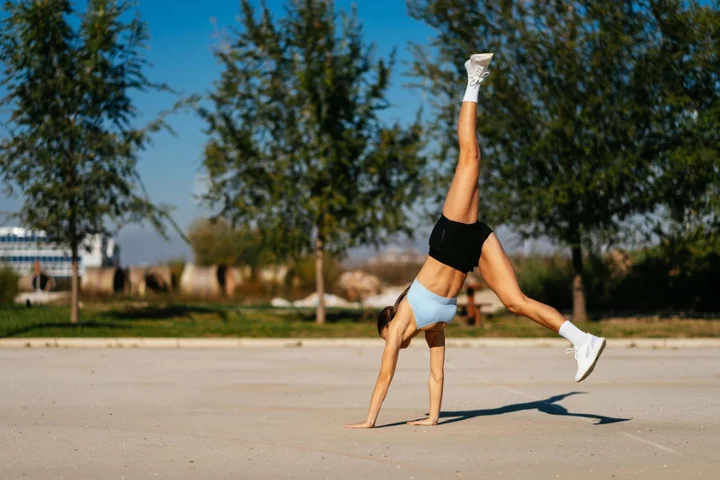
TikTok has gone wild for adult gymnastics – here’s what you should know
Have you always wanted to be able to do the splits or a backflip? Maybe you’ve watched your kids do a gymnastics class and thought, ‘Wow, that looks so fun’. Adult gymnastics is gaining some serious popularity online, with the TikTok hashtag #adultgymnastics getting over 209.5 million views. Influencers such as Anna Archer – who has over 300,000 followers on Instagram and creates content surrounding lots of different fitness experiments – and stunt woman Corinne Nicewick have shared clips of their experiences of trying out gymnastics as an adult. Nicewick, despite being a talented stuntwoman, has shared clips of how challenging she has found the sport, with viewers finding her attempts both funny and encouraging. Gymnastics has put some famous faces in good stead for other fitness-related challenges, with gymnast Beth Tweddle winning the 2103 series of Dancing on Ice and Ellie Downie, GB gymnast taking on the gruelling SAS: Who Dares Wins reality show in 2023.So, what do you need to know before you get involved? How does adult gymnastics work? Can anyone do it? Classes have been steadily cropping up across the UK encouraging adults of all abilities to get involved in gymnastics, and unless you have a health problem or injury that may restrict you from doing so, anyone can get involved. It is not so dissimilar to exercises you may already do like plyometrics (explosive body weight resistance exercises like box jumps), CrossFit or yoga. “Gymnastics is a series of different exercises that test your strength, mobility, flexibility and agility,” says Sofia Zolobova, instructor and gymnastics expert at Gymbox. “It’s also a lot of fun, incorporating lots of different floor, beam and hoop exercises,” she explains. This element of variety can bring a more fun, playful element to your workout routine. What are the health and wellbeing benefits of adult gymnastics? Gymnastics will give your body a really different workout and improve your strength, mobility and balance. “Strength and mobility are both very important as we grow older,” says Zolobova. “Gymnastics uses your own body weight, so not only do you get stronger, you move better. For example, to be able to execute a hand stand you need great shoulder mobility,” she explains. “With our modern tight shoulders, gymnastics can be helpful in improving our posture.” How do you get past being scared? As a kid, doing a cartwheel and taking a tumble doesn’t seem so threatening, but as adults we are all a bit more scared of getting hurt. Instead of falling into the trap of fear, embrace the playfulness of it. Zolobova says: “It’s a really fun way to exercise. It includes handstands, cartwheels and frog jumps, letting you unleash your inner child. It empowers you to do cool tricks as an adult and work up to a certain goal. It’s also a great fear fighter – sometimes you just have to let go and trust yourself.” What should we be careful of in adult gymnastics? Your fitness and flexibility may not progress as quickly as they might have done as a child. “Children are naturally more flexible than adults, so when undertaking gymnastics for the first time keep this in mind. Take things slow and one step at a time – you can always build up strength and flexibility with consistent practice,” explains Zolobova. How do we protect our backs and joints? Putting your back out or hurting your joints is a very real fear as an adult. Zolobova says: “Stretching should never be skimped on and should be thorough and dynamic [involving movement]. It’s also very important to make sure the body is warmed up before undertaking any gymnastic moves, a light jog and jumping jacks are great ways to get the muscles warm fast.”
2023-08-30 21:47
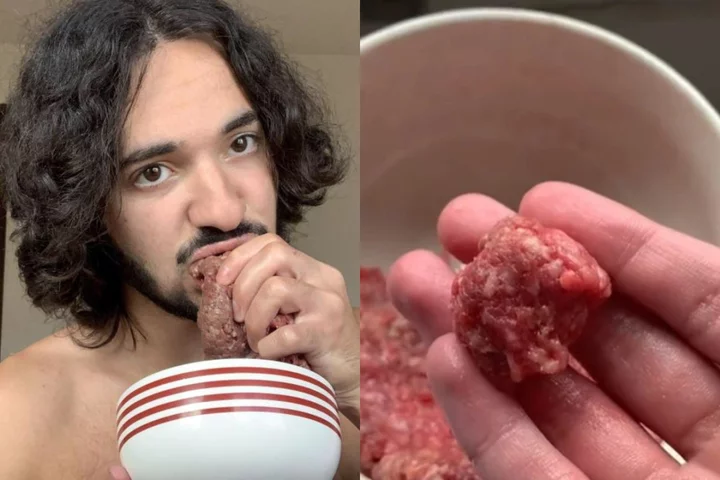
Man explains why he swapped veganism for raw meat diet: ‘I feel great’
A 20-year-old has swapped veganism for raw meat, eating uncooked items including beef, chicken, heart and liver on a daily basis for the past four years, and claims he has “never gotten sick”. Jones Hussain, from Stockholm, Sweden, has eaten raw chicken as well as raw cuts of beef, minced meat and fish, without batting an eyelid – even if they are brown or smell slightly. He says he would happily eat any kind of meat provided it is good quality, from “wild boar to camel” but that he prefers minced beef because it is cheap, accessible and does not smell compared with chicken. Jones took the decision to eat raw meat just a few months after quitting veganism in 2019 “in the name of health” after he watched a YouTube video with the late American alternative food nutritionist, Aajonus Vonderplanitz, whose “Primal Diet” has inspired people worldwide. Health has always been important for Jones, who supplements his raw meat diet with fruit and juiced vegetables. He said he would not eat cake for £10,000 because of the sugar and claims to have not had a slice since the age of 13. “If any food safety expert looked at the food I eat, I think they would have a heart attack because the beef is sometimes brown, the liver looks green, the chicken stinks,” Jones told PA Real Life. “But I eat that and then nothing happens. “I did the experiments on myself to see whether what we have been led to believe is actually true and surprise, surprise, it wasn’t.” Jones, who said he has always been driven by “health”, came across the raw meat diet plan in 2019 a few months after quitting veganism. “My starting point has always been health,” he said. “So I’ve experimented with a bunch of things in the name of health.” The diet was designed by Vonderplanitz, who touted the benefits of eating raw foods, in particular meat and dairy. “I found one of his lectures on YouTube and started listening,” he said. “At first, I was just as shocked as anyone would be to see someone eat such a diet.” But Jones said he found Vonderplanitz’s arguments to be “honest and convincing” and so decided to give it a try. “I ate raw meat for the first time in November 2019 and I felt great,” he said. “It was just a straight cut of raw beef.” Having not fallen ill, Jones then decided to try raw ground beef. “That was the scary part because that’s when you enter into uncharted territory,” he said. “I was like, if I get sick then I won’t do this anymore. “Lo and behold, again, I didn’t get sick, so I started eating raw ground beef because it’s much cheaper than straight cuts.” To start with, Jones would flavour the raw meat with spices and garlic. “But then I felt that I didn’t need them, even from a taste perspective,” he said. “So I just started consuming it by itself and ever since then I’ve eaten raw ground beef almost every day.” By the summer of 2020, Jones had become accustomed to eating all types of meat. “I had no problems eating raw chicken because I had found a fairly good source in the supermarket so I ate it like KFC,” he said. “I also started buying raw liver here and there, and eating a small amount every day.” The raw meat Jones kept in his fridge soon started to turn “green”, but this did not stop him from eating it. “Since I was so convinced about what Aajonus was saying, I was not worried and just consumed it,” he said. “But if there was any white mould, then I got rid of the batch, although this did not happen very often.” Jones has continued eating raw meat ever since, although his family prefers ground beef to chicken because of the smell. “Nowadays I don’t so much eat raw chicken because it stinks up the house,” he said. In a single sitting, Jones said he is capable of consuming around 400g of raw liver. He said he believes dumping veganism for raw meat has improved his gut health and helped get rid of his acne. “The thing with raw meat is that the nutrients are more easily absorbed and unaltered,” he claimed. “It’s not that raw meat has some kind of special super power, it’s just that by not cooking it, I get more nutrients and no byproducts.” NHS guidelines, however, state that “cooking meat properly” kills harmful bacteria which can cause food poisoning. Jones had been a vegan for two years, from 2017 to 2019, before eventually converting to the primal diet. “It’s not that I was struggling to get enough nutrients,” he said. “It’s that a human being cannot survive on a vegan diet successfully. “Of course you can take supplements but it’s not the same thing, because they are processed. “There is no other way of getting these nutrients naturally other than by eating animal products. “So veganism on that basis, falls on its face.” Jones also eats raw fish such as salmon and tuna and said he is happy to eat any type of meat provided he can find a reliable supplier. The Primal Diet also includes fruit and vegetables, all of which are consumed raw. “I eat cucumbers and tomatoes, as well as oranges and apples when they are available to me,” he said. “The philosophy is don’t cook the food, but there is a variety.” Jones’ unusual diet often shocks people, including his parents who are concerned for his wellbeing. He explained: “Usually people have the same reaction, at first they think what the hell is this guy doing? He’s going to die in a few days. “Then they speak to me and find out that I’ve been doing it for three and half years, that I’ve never gotten sick, that my arguments are logical and that I look healthy. “They are like all right, that’s a new perspective that I had not heard before.” People behave differently on social media, however, said Jones, who has his own YouTube channel, Excellent Health. He also works part time at an elderly day care centre and has written a book titled The 6 Health Commandments. “The only time I ever got food poisoning was from a frozen bag of raspberries before I started eating meat,” he said. “I decided not to act out of fear, but to see what is true and what isn’t true.” To find out more about food safety, visit www.food.gov.uk/safety-hygiene/cooking-your-food. Read More Eating a raw vegan diet almost killed me Study reveals one thing to focus on if you want to live to 100 Charity boss speaks out over ‘traumatic’ encounter with royal aide Ukraine war’s heaviest fight rages in east - follow live
2023-08-30 19:19
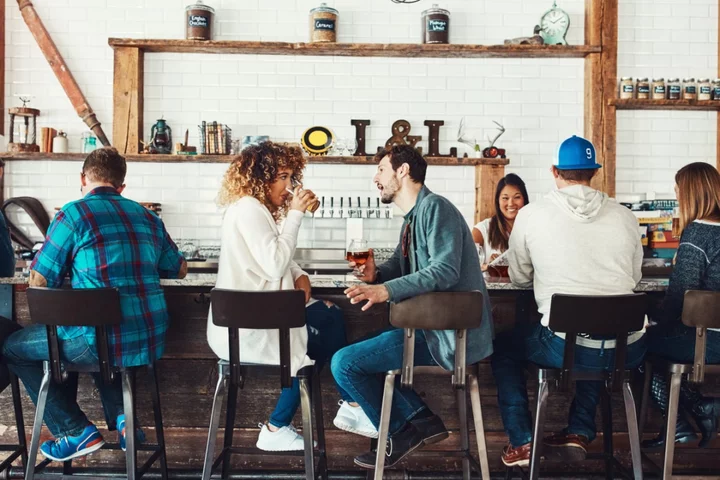
Drinking alcohol does not result in ‘beer goggles’ making people look more attractive, study says
When it comes to approaching someone you like at a bar, it may be more a case of alcohol giving you liquid courage than “beer goggles”, researchers say. A new study suggests drinking alcohol makes people more likely to approach someone they already find attractive, but does not make others appear more attractive. Some people argue that intoxication makes others seem better-looking – but according to the researchers, this has not been systematically studied. Past research typically had people simply rate others’ attractiveness while sober and while intoxicated based on photos. But the new study added the possibility of meeting the people being rated. The study, led by Molly Bowdring of the Stanford Prevention Research Centre, Stanford University, in the USA (affiliated with University of Pittsburgh at the time of this study), and her dissertation adviser, Michael Sayette, involved 18 pairs of male friends in their twenties. The men were brought to the laboratory to rate the attractiveness of people they saw in photos and videos. They were also told that they may be given the chance to interact with one of those people in a future experiment. After the ratings were given, the men were asked to pick those who they would most like to interact with. Pairs of men visited the lab on two occasions – on one occasion they both received alcohol to drink – up to about a blood alcohol concentration of .08 per cent, the legal limit for driving in England, Wales and Northern Ireland, and the United States, and on the other occasion, they both received a non-alcoholic drink. Friend pairs entered the lab together in order to mimic social interactions that would typically take place in a real drinking situation. The researchers say they did not find evidence of beer goggles – whether or not the men were intoxicated had no effect on how good-looking they found others. Professor Sayette, from the University of Pittsburgh, said: “The well-known beer goggles effect of alcohol does sometimes appear in the literature, but not as consistently as one might expect.” However, according to the findings, drinking alcohol may affect how people react to those they find attractive in a different way. The researchers found it impacted how likely the men were to want to interact with people they found attractive. When drinking, they were 1.71 times more likely to select one of their top-four attractive candidates to potentially meet in a future study compared with when they were sober. The researchers suggest alcohol may not be altering perception but rather enhancing confidence in interactions, giving the men liquid courage to want to meet those they found the most attractive. According to the researchers, the findings could have implications for therapists and patients. Prof Bowdring said: “People who drink alcohol may benefit by recognising that valued social motivations and intentions change when drinking in ways that may be appealing in the short term, but possibly harmful in the long term.” The findings are published in the Journal of Studies on Alcohol and Drugs. Read More Yewande Biala thought she was unique in never having had an orgasm – then she made a film about it The dish that defines me: Evelin Eros’s rum cake Woman adopts husband’s ex-wife’s son after growing up in foster care herself Charity boss speaks out over ‘traumatic’ encounter with royal aide Ukraine war’s heaviest fight rages in east - follow live
2023-08-30 15:28
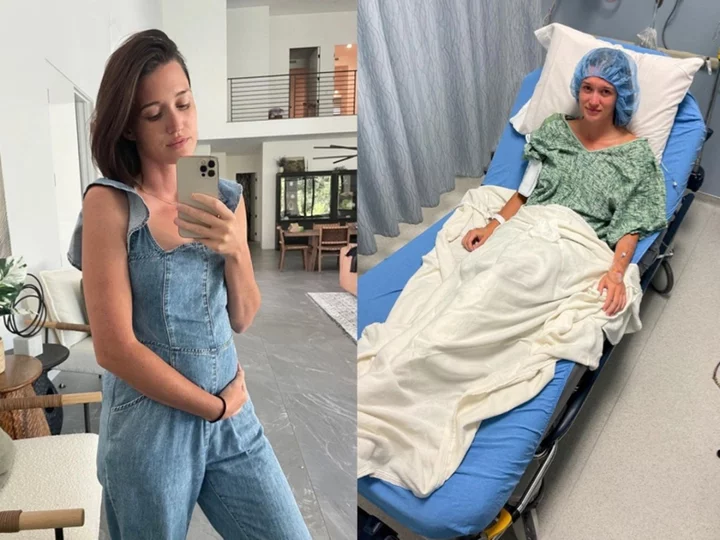
The Bachelor’s Jade Roper offers support to women going through miscarriage as she loses baby at five months
Jade Roper Tolbert has shared an emotional message on social media after suffering from a “missed” miscarriage earlier this month. The 36-year-old, who was a contestant on season 19 of The Bachelor, recently revealed on Instagram that she was just five months pregnant when she lost her baby boy due to a miscarriage. Jade and her husband Tanner Tolbert - who she met on the reality dating show’s spinoff Bachelor in Paradise - had decided to name the baby Beau. In an Instagram post shared on 29 August, Jade was pictured laying in a hospital bed in a gown, as she looked teary-eyed at the camera. “Well, here we are,” she began the caption. “I didn’t want or expect it to go this way, but it is. I so badly wanted to bury him under a beautiful tree in our yard, to see any glimpse of his tiny body, which is why I held out so long trying to trust my body. But, it is time to heal and get to the other side of this loss.” Jade continued by sharing a message of support for women who have also experienced a miscarriage, as she told her 1.3m Instagram followers: “I’ve been trying to protect my peace and respect my baby, so I’ve only been sharing bits and pieces here and there to hopefully maybe help someone else feel less alone going through this.” “I see you, I feel your pain, and I love you,” she added. “And to Beau, I carried your body for almost five months, your soul for a little less, but I carry you with me in my heart everywhere and for always.” On 13 August, Jade announced her miscarriage in another emotional Instagram post. The reality TV star explained that she was experiencing a “missed” miscarriage - in which the foetus has died, but the body has not expelled the pregnancy tissue. According to the Miscarriage Association, a missed or silent miscarriage can occur without the mother experiencing any symptoms, such as bleeding or pain. “I’ve been struggling what to write here as I’ve been navigating a miscarriage,” Jade captioned her post, which included a mirror selfie of her baby bump, hands resting on her pregnant belly, and a photo of an ultrasound. “It felt like all my dreams were coming true to welcome another baby into our lives, to love and to complete our family. While our hearts are completely broken and we have been dealing with the deep and complex grief of the loss, we have been blessed to be touched by his soul for his short amount of time. I am forever changed.” The mother of three shared that she hoped to experience her missed miscarriage “naturally” with the help of her doctor. “I’ve been carrying him with so much pride and cherish every moment still left with part of him, but it has also been equally as challenging and devastating,” she wrote. “So while I hold my belly here, our sweet baby’s body is resting in my womb as his soul soars. We love you with every piece of our hearts, baby Beau.” Days later, Jade revealed in an Instagram Q&A that she had not yet told her three children about her miscarriage. When asked by a fan if her six-year-old daughter, Emerson, and her sons - Brooks, four, and Reed, two - knew about the pregnancy loss, Jade replied: “They don’t.” "Still figuring out if we tell them soon or wait until they are a bit older," she added, before asking the Instagram follower for advice. In the Q&A posted to her Instagram Stories, the Bachelor in Paradise alum was also asked whether she will continue to try for baby number four. “Very up in the air,” she replied. “A big part of me wants to, but I’m just not sure right now.” Her husband, Tanner Tolbert was a contestant on season 11 of The Bachelorette, but was eliminated in week six. The couple met on season two of Bachelor in Paradise and were married in 2016, when their wedding was documented in season 20 of The Bachelor. Read More Former Bachelorette contestant Josh Seiter says he’s alive after death announcement And Just Like That fans denounce the show for not being ‘progressive’ enough in latest episode A Tennessee woman needed an abortion and couldn’t get help nearby. Then she went viral on TikTok ‘Boy moms’ called out for logic behind teaching their sons to cook Maya Jama and Stormzy: Can you make it work with an ex? 12 smart ways to save money on everyday back-to-school costs
2023-08-30 03:50
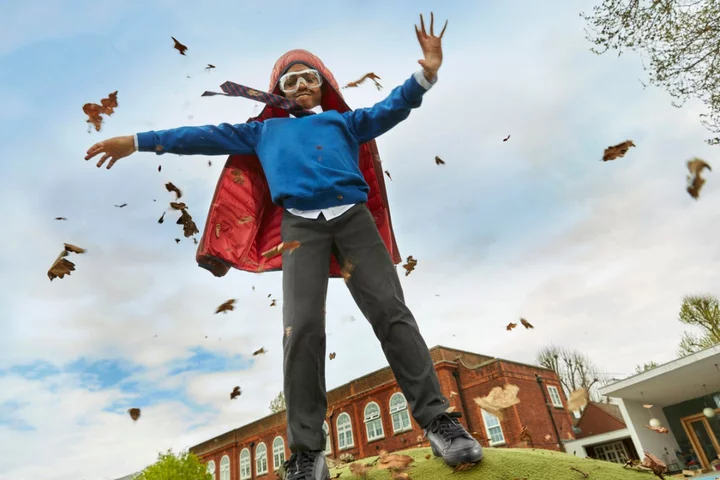
12 smart ways to save money on everyday back-to-school costs
Back-to-school shopping can create a hole in parents’ budgets at the best of times, but with a cost-of-living squeeze in full swing, money is particularly tight this year. At a time when every cutback counts, here are some ways to save some money on the costs that will earn you top marks for effort. 1. Check what you have This can be particularly useful if you have more than one child and need to pass items down. When sorting clothing, create piles of those that are in good condition, those that need repairs, and items that are beyond salvaging. Alice Haine, a personal finance analyst at investment platform Bestinvest, says: “Carry out a full audit to see what uniform, stationery items, lunchboxes and water bottles you already have. “You may find unused items still in pristine condition at the back of a cupboard, or used items that are good to go for a second or third academic year – after all, you only want to buy new if you have to.” 2. Create a ‘sell’ pile Haine suggests: “If your child has outgrown some of their uniform, sell them on Facebook Marketplace or WhatsApp groups, and use the cash to buy new items.” Vinted is worth a try, too. 3. List everything you need Once you’ve sorted through everything, make a list of the items you need to acquire. If you have a clear idea, you’re less likely to waste money doubling up, plus, you can buy what’s needed as and when you spot special offers. Depending on your circumstances, it may also be worth checking your government website for grants which could help with school uniform costs. 4. Be clear on school rules You could end up wasting your money if you buy items which don’t match school policies. Haine says: “If you are heading to a new school, check the uniform policy before you buy. Some schools may demand a certain style or colour.” 5. Team up with parents for ‘bulk buys’ “Some multipack prices may seem like great deals, but you might not need four items, so team up with a fellow parent to share the cost,” says Haine. 6. Remember that the cheapest price isn’t always the best value “When it comes to shoes, it can pay to go for a slightly better brand,” suggests Haine. “Cheap shoes can have a short shelf-life when you consider how much they get battered at school. Keep the receipt, because if shoes do fall apart over a short period of time, some stores may replace them with a new pair.” 7. Make sure there’s ‘growing room’ “Always go a size up if your child is still growing, especially on the pricier items, such as blazers, to ensure you get the most out of the investment,” says Haine. “Some brands even sell trousers with a grow-proof hem that can be let down and pressed with an iron, to ensure clothes last longer.” 8. Go refurbished Abigail Yearley, a spokesperson for website TopCashback.co.uk, says: “There are plenty of trustworthy and reliable sites that sell second-hand or refurbished tech, which works as good as new. Just make sure it comes with good warranty before buying.” You may also be able to buy refurbished devices directly from the manufacturer, she says. 9. Look out for second-hand items Check the school’s website for information on buying second-hand uniforms. “Many schools offer a pre-loved uniform service, so checking if that’s available to you should be the first point of action,” suggests Yearley. “If that’s not an option, check on the parents’ group chat if anyone is looking to give away or swap items they no longer need. It’s also worth scouting out Facebook Marketplace and popping into your local charity shops.” 10. Compare prices online Browsing online is a fast way to research and compare prices. Websites such as TopCashback can also help people to get some cashback on purchases from brands such as Clarks, Wilko and Dell, for example. 11. Look out for supermarket staples Tesco, for example, is running a discount deal on selected stationery and lunchtime essentials for its Clubcard members, until September 7, subject to availability. Yearley says: “All the big supermarkets tend to run back-to-school events during the summer months, so make sure you keep an eye out for them. “It’s especially worth checking out discount supermarkets like Aldi, as their back-to-school events are known for bargain prices. “Even if you’ve missed the special event, it’s worth checking their middle aisle, as often you’ll find things like stationery and lunchboxes, which are still cheaper than buying elsewhere.” 12. Get something back for donating M&S has expanded its ‘shwopping’ scheme, with dedicated school uniform shwopping boxes in over 200 stores, to encourage families to donate pre-loved school uniform, to be resold in Oxfam and through a pilot shop with eBay. As a thank you for shwopping school uniform, M&S Sparks customers can receive 20% off selected kids clothing from the retailer. Similarly, if last year’s school shoes are now a battered pair of Kickers, you can recycle them through their Reskinned initiative, which will also get you £15 towards a pair for the new school year. And Schuh offer a £5 voucher for every pair of unwanted shoes you donate, as part of their Sell Your Soles scheme. All these savings really do add up. Read More How to help your child make friends at secondary school Parents should already start getting their kids ready to go back to school, according to research Charity boss speaks out over ‘traumatic’ encounter with royal aide Ukraine war’s heaviest fight rages in east - follow live
2023-08-29 19:50

Study reveals the ideal temperature for getting a good night’s sleep
Scientists have found the ideal nighttime bedroom temperatures in which older adults can get their most restful sleep. Previous research has shown that older adults often experience inadequate, restless and disrupted sleep. And the findings of the current research, published recently in the journal Science of The Total Environment, also underscore the potential impact of the climate crisis on sleep quality in older adults, particularly those with lower socioeconomic status. This in turn influences many of their health outcomes such as cognitive and physical function, mood and affect, irritability and reaction to stress, productivity, diabetes management and risk of cardiovascular diseases. Scientists, including those from Harvard Medical School in the US, have found in their current research that sleep can be most efficient and restful for older adults when nighttime bedroom temperatures are between 20-25 degrees Celsius. The study also observed an overall trend of about 5-10 per cent drop in sleep efficiency once the nighttime ambient temperature increased from 25-30C. While poor sleep is disproportionately more common among older adults, research on its causes has not focused substantially on the environment the person sleeps in, said scientists. In the latest study, scientists examined the association between bedroom nighttime temperature and sleep quality in a sample of community-dwelling older adults. They monitored sleep duration, efficiency and restlessness of the participants using wearable sleep monitors and environmental sensors over an extended period within their homes, while controlling for potential confounders and covariates. Overall, researchers collected nearly 11,000 person-nights of sleep and environmental data from 50 older adults. “These results highlight the potential to enhance sleep quality in older adults by optimizing home thermal environments and emphasizing the importance of personalized temperature adjustments based on individual needs and circumstances,” study lead scientist Amir Baniassadi said in a statement. “Our study underscores the potential impact of climate change on sleep quality in older adults, particularly those with lower socioeconomic status,” the scientist said. In further studies, scientists plan to continue this line of work by focusing on the potential impact of the climate crisis on sleep in low-income older adults, and develop interventions to optimise their environment. Read More The top things to make you feel good and boost your mood, according to study A broad genetic test saved one newborn's life. Research suggests it could help millions of others Snoring before age 50 is a health ‘red flag’, experts suggest
2023-08-29 19:29
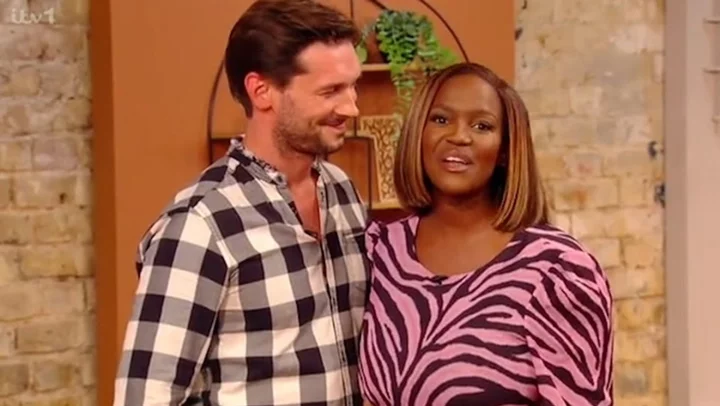
Oti Mabuse says she had stopped trying to conceive before becoming pregnant: ‘Nothing was happening’
Oti Mabuse has revealed that she and her husband Marius Iepure had stopped trying to conceive when she discovered she is pregnant with their first child. The former Strictly Come Dancing star announced on Saturday (26 August) that she is expecting, describing the pregnancy as “the best news we could have ever asked for”. Mabuse, 33, shared in an Instagram Story on Monday (28 August) that she had initially “given up” on trying to conceive because “nothing was happening”. She posted a video of her and her friend Nkateko Dinwiddy celebrating her pregnancy, and wrote over the clip: “My friend @takkies7 asked me to [take a pregnancy test] because I was drinking coffee and I don’t drink coffee. “We had been trying for a while and decided to stop (it all just got too much) and just live life as us two as nothing was happening. “We enjoyed each other’s company, dinners, concerts, parties, just simply removed all the pressure and here we are!” In another Instagram Story, she shared a screenshot of a WhatsApp conversation between her and Dinwiddy, showing her friend asking if she had taken a pregnancy test yet. Mabuse replied: “Ahhhh why? [cry-laugh emoji] Don’t stress me I’ve actually given up.” But the Dancing On Ice judge shared the happy news over the weekend live on her ITV Breakfast Show. She also shared a series of photographs of her and Iepure cradling her growing baby bump on Instagram and wrote in the caption: “We love our little bundle of joy so much already… and can’t wait to see what our future will look like now as a family of three plus Leo. “It’s been a beautiful journey so far with close friends and family and nearly over but we have learnt a lot along the way… Christmas is about to get even louder.” Mabuse also shared a video montage of the moment the couple shared the news with their close friends and family over FaceTime and in person, including with her sister, Strictly judge Motsi Mabuse. The expectant mum said in her caption: “Living in a different country as a couple means you don’t have family around to break the news face to face to. “And most often, friends become family. We are so extremely lucky with our group of friends. Disclaimer: This isn’t all of them, not enough video space. But we kept our circle really tight, full of positive energy, laughter and joy.” Motsi left a comment under the video and said: “Just cried again [red heart emoji].” Mabuse and Iepure met in Germany as dance partners in 2012. He proposed to her in 2014 on her birthday and they married that same year. Read More ‘My depression ate me up and stopped me doing the thing in life I loved the most – cooking’ BBC Breakfast’s Emma Vardy announces birth of son: ‘Presenting my best breaking news ever’ Maya Jama and Stormzy ‘confirm relationship’ as they’re seen holding hands in Greece Oti Mabuse announces she is pregnant with her first child Amy Dowden reveals ‘life-threatening’ sepsis diagnosis amid cancer treatment BBC Breakfast’s Emma Vardy announces birth of first child
2023-08-28 23:23

Amy Dowden reveals ‘life-threatening’ sepsis diagnosis amid cancer treatment
Amy Dowden has revealed that she was recently diagnosed with “life-threatening” sepsis as she underwent cancer treatment earlier this month. The Strictly Come Dancing star, 33, told her nearly 490k followers on Instagram that she suffered a “setback” in her treatment and had to spend “several days in hospital” being treated by an ICU team. In June, Dowden underwent a mastectomy after being diagnosed with stage three breast cancer the month prior. She began chemotherapy earlier this month after doctors found another type of cancer. Speaking to Hello! magazine in a new interview, the professional dancer said she started feeling ill two days after her first round of chemotherapy and started getting a fever. “I started having a temperature of 37.7 degrees Celsius,” she recalled. “At the time, I didn’t realise that having a temperature of 37.5 or above could be fatal for a chemo patient. I just thought it was my reaction to chemo, but as it turned out, I had already got an infection.” She added: “I felt freezing cold but I was all clammy and shaking. My mum and dad rang my red card [which provides the chemotherapy team’s contact details and current treatment information] and they said to hang up and ring the ambulance.” Dowden continued: “I didn’t want to go into hospital; at the time I didn’t realise how ill I was. “I knew it was a Saturday night, so A&E would probably be crowded, and it was dangerous being around people as it’s more likely you’ll pick up an infection. “On chemo, you don’t have your white blood cells to fight infection. We now know I had the infection just before I started chemo, but we were never able to pinpoint what actually caused it.” Dowden said she was so ill that she couldn’t really understand the danger she was in. “The doctors and nurses were telling me I had sepsis and that it was life-threatening, but I wasn’t taking it in,” she said. “I didn’t become properly aware until later. I told my dad, ‘I’ve got sepsis’ and he said, ‘I know!’” On her birthday on 10 August, Dowden spent the day in hospital after her temperature went up again. She is currently recovering at home and has been able to continue her chemotherapy treatment. The treatment has caused the TV star to start losing her hair and she now wears a wig, but she is hopeful she will be able to appear on the forthcoming series of Strictly in some way. She revealed that the Strictly production team is “getting me some fabulous wigs ready”. “The team are being guided by me – they’ve been utterly amazing,” Dowden said. “We’ve got some dates in the diary, but it will depend on how I feel. We’re taking it a step at a time.” Dowden’s professional dancer colleagues on the show have been sending her videos, flowers and presents to encourage her as she undergoes treatment, she added. “I speak to Dianne [Buswell] every single day. This is impacting on them as well because we’re a team,” she said. “I’m grateful they are including me because Strictly will help me get through the next few months, mentally. It’s just the tonic that I need.” Last week, Dowden opened up about her hair loss and admitted she was finding it “so hard”. She shared a photo of a clump of her hair that had fallen out with a series of broken heart emojis and wrote: “So much everyday! So hard! One day at a time!” After her mastectomy, Dowden was told she needed chemotherapy as doctors found further tumours after the surgery. In an Instagram Live chat, she said: “They found another type of cancer and then they told me I needed chemo – for me that was a massive blow. It wasn’t in the plan, originally – and I know the plan you can’t get fixated on.” Dowden is married to her long-term partner Benjamin Jones, who is also a professional dancer. The couple wed in 2022, after having to reschedule their wedding due to the Covid pandemic. Read More ‘My depression ate me up and stopped me doing the thing in life I loved the most – cooking’ Maya Jama and Stormzy ‘confirm relationship’ as they’re seen holding hands in Greece Pilot makes sweet announcement to his flight attendant mother on first flight together Strictly’s Amy Dowden finding it ‘so hard’ as she shares hair loss update amid cancer BBC Breakfast’s Emma Vardy announces birth of first child Ultra-processed food may cause ‘tidal wave of harm’, including heart attack, stroke
2023-08-28 22:28

BBC Breakfast’s Emma Vardy announces birth of son: ‘Presenting my best breaking news ever’
BBC Breakfast star Emma Vardy has welcomed her first child with husband Aaron Adams. The co-host of the morning news programme announced her “best breaking news ever” on Instagram, where she shared a photo of herself cradling her newborn. Vardy first revealed her pregnancy in May, when she shared a photo of her baby bump after a day of surfing in Co Sligo. The BBC Ireland correspondent wrote on Instagram: “Presenting my best breaking news ever. Baby boy Jago Fionn is here. “At just a few hours old, playing a little camera shy. Huge thanks to the dedicated and talented midwives and doctors at Belfast’s Royal Victoria Hospital for looking after us so well.” She added that she and Adams were “smitten and so in love”. The photo was a selfie taken from her hospital bed as she cuddled the newborn baby, who has dark hair and was dressed in a white onesie. Announcing the news of her pregnancy in May, Vardy posted a photo of herself holding a surfboard as she showcased her bump. She wrote: “Well folks it’s definitely getting a bit harder to balance…. extra cargo hitching a ride!! Still managing to catch a few waves though. “Beautiful weekend in Co Sligo, and a very exciting summer ahead!!” She added: “#paddlingfortwo #babyonboard.” Last month, Vardy celebrated her baby shower and shared a series of photos from the joyous event. She wore a one-shouldered white gown and a beautiful pink and yellow flower crown as she posed in front of a large blue-and-white balloon display. Other photos included in the post showed her friends and family posing with her, all wearing green flower crowns, as well as photos of the decoration and tablescape for the event. “Belated Babyshower spam for the gram,” she wrote in the caption. Vardy married Adams in March 2022 in Co Antrim, where Adams’ son Jonah acted as ring bearer. Read More ‘My depression ate me up and stopped me doing the thing in life I loved the most – cooking’ Maya Jama and Stormzy ‘confirm relationship’ as they’re seen holding hands in Greece King Charles planning ‘major shakeup’ to Royal Household staff Elle King opens up about her ‘deep depression’ amid two-year postpartum journey Sienna Miller pregnant with her second child Serena Williams celebrates second pregnancy with ‘pre-push party’
2023-08-28 20:21

Ultra-processed food may cause ‘tidal wave of harm’ including stroke and heart attack risk
Two new studies have found conclusive links between the consumption of ultra-processed foods (UPF) with increased cardiac disease risk, including heart attacks and strokes. The research, presented at the annual meeting of the European Society of Cardiology in Amsterdam, found highly processed food sold in stores across the world, such as fizzy drinks, cereals and ready-to-eat meals, may lead to an increased risk of cardiovascular diseases and hypertension. Henry Dimbleby, the UK government’s former food tsar, said the findings should be a “wake-up call” for the country. “Britain is particularly bad for ultra-processed food. It is storing up problems for the future,” he told The Guardian. “If we do nothing, a tidal wave of harm is going to hit the NHS.” One of the studies, conducted by scientists from the Fourth Military Medical University in China, conducted a review of 10 studies that included 325,403 participants and 38,720 cases of cardiovascular disease (CVD) events, including heart attack and stroke. It found a conclusive association between UPF and heart disease risk. Scientists found that a 10 per cent increase in UPF consumption in daily calorie intake is linked to a 6 per cent rise in heart disease risk. Researchers also observed that the lowest risk was at a less than 15 per cent per day of UPF consumption out of total calorie intake. However, heavy UPF consumption “was significantly and positively associated with increased risk of cardiovascular events,” scientists noted. The other research, also presented at the world’s largest heart health conference, assessed the link between UPF intake with CVD and hypertension in a population of middle-aged women in Australia. Scientists, including those from the University of Sydney, assessed health data of about 10,000 women aged 46-55 years who were recruited into the Australian Longitudinal Study on Women’s Health and followed for 15 years. They assessed the contribution of UPF in the daily dietary intake of these women as well as their self-reported heart disease and stroke, and/or hypertension incidences. The women included in the study had an average UPF intake of 26.6 per cent of total food dietary intake. Over their 15 years of follow-up, scientists found 1,038 incident CVD and 4,204 hypertension cases. Among the middle-aged women, scientists observed that a higher UPF intake was associated with higher risk of CVD and hypertension. “These findings lend support to minimising UPF intake as a component of a heart-healthy diet,” scientists wrote in the study. Taken together, the findings hinted that the harm caused by UPF may be more than just due to their high salt and fat content. “If there is something inherent in the processing of foods that is harmful, then that is a disaster,” said Mr Dimbleby. Read More First-of-its-kind study finds laughter is indeed good medicine, especially for the heart How many steps a day can cut risk of early death (and it’s not 10,000) Weight loss jabs improve heart failure symptoms in obese patients – study First-of-its-kind study finds laughter is indeed good medicine How many steps a day can cut risk of early death (and it’s not 10,000) ‘Boy moms’ called out for dubious logic behind teaching their sons to cook
2023-08-28 14:54
